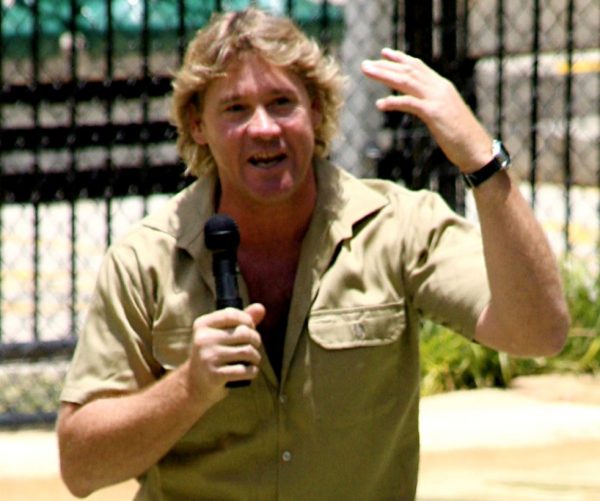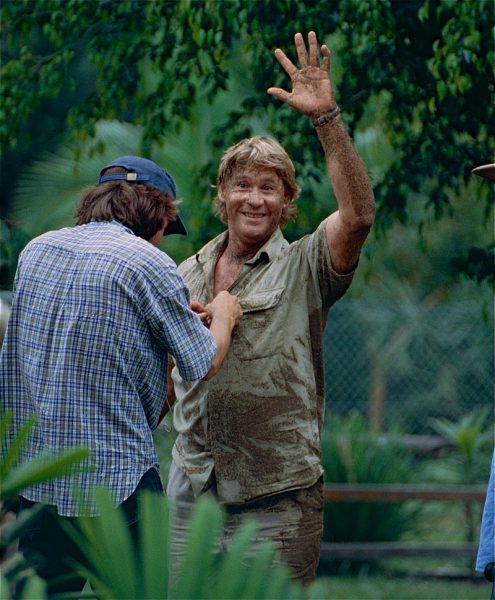South African Elephant Hunter Crushed by Elephant
Depending on one’s point of view, the fate of elephant hunters who die when on the trail of massive, dangerous creatures is either poetic justice for innocent lives taken, or merely a stroke of profoundly bad luck.
Theunis Botha was a man who spent his career killing wildlife in South Africa.
His death was certainly an ironic one, as he was pinned beneath and crushed by a massive elephant encountered by the hunting party he was leading.
And he is certainly not the only hunter who has died at the hands of the animals they were hunting — prey becoming hunter, so to speak, and hunter becoming prey.
Botha was only 51 years old when he inadvertently walked into a herd of elephants that were breeding — a notoriously risky and unpredictable time in any animal’s life cycle.
Trophy hunter dies. World gets a little lighter.
Notorious hunter crushed to death by elephant his group killed https://t.co/hAqq3TFMlP
— Dan Wourms (@DanWourms) May 22, 2017
He was leading a group at the Good Luck Farm near Hwange National Park in Zimbabwe in May, 2017, when he surprised the herd.
A female elephant hoisted Botha with her trunk, and when a fellow hunter fired at her and killed her, she collapsed, with Botha beneath her, instantly crushing him.
Botha’s company, Game Hounds Safaris, was best known for its use of dogs to help track prey, and many clients — wealthy North Americans and Europeans hunting big game for sport — turned to him to help them acquire rare species as their trophies. Botha was considered especially skilled at finding and killing leopards and other big cats.
Just a month prior to Botha’s death, his friend and colleague, Scott van Zyl, 44, was killed by two West Nile crocodiles that his hunting party was tracking. Experts said at the time that “human DNA” was found in the animals’ stomachs, after they were captured, killed and examined by pathologists.
Perhaps the most unusual death of any individual who spent a lifetime in close proximity to wild animals was that of Australian Steve “Crocodile Man” Irwin, who died in 2006.

Irwin had spent his career educating people about everything from crocodiles to sting rays to pythons, teaching that fear was not the right response — knowledge was.
However, his luck with deadly creatures ran out in September, 2006, when he was swimming only a few feet from shore in Port Douglas, north of Queensland, while he was in the waters of the Great Barrier Reef.
A massive sting ray flicked its tail and sent a barb, filled with toxins, straight into Irwin’s heart, and he died within minutes. His television crew, which was filming the swim for an episode of Irwin’s TV show, “The Crocodile Hunter,” actually caught the man’s death on camera.

The footage, however, was seized immediately as evidence in an investigation into Irwin’s death. Results of that investigation proved conclusively that Irwin in no way provoked the sting ray — he was simply swimming above it and the animal reacted; there was nothing Irwin or anyone else could do, it happened so quickly.
John Stainton, who was Irwin’s manager at the time, happened to be on the set that day and saw the footage. He later said that watching the clip was “terrible,” like watching a close friend die suddenly and in real time, which is exactly what it was.
That is the chance these people take when they decide to devote themselves to animals in the wild, whether they choose to hunt them, as Botha and van Zyl did, or learn about them and in turn educate the public, as Irwin did.
Either way it is an extraordinarily risky endeavour, one that they did not take lightly.
https://www.youtube.com/watch?v=QLIMgXv89VU&list=PLbDHC5gleKSfeqBtdbgaMXP0KGXNIn3vI
Perhaps anyone who hunts an animal capable of turning around and killing them knows, deep in the recesses of their heart, what their fate could one day be.
Perhaps they even see it as a kind of rough justice, a “turn about is fair play” end to a life spent tracking, killing, and displaying the heads of these beasts in homes and offices.
Frostbitten Cat Gets Four Titanium Paws
And maybe they are fine with that possibility, because they had the opportunity to spend their lives in the wilderness, among the animals they must surely have respected, and admired.





